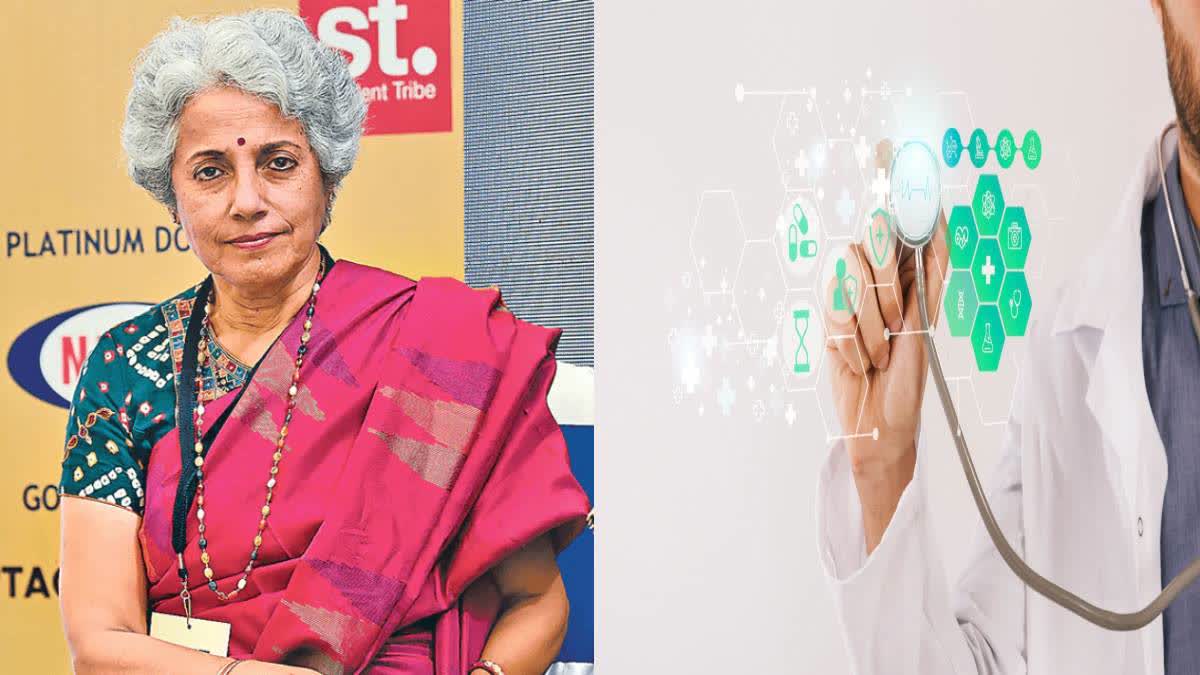Hyderabad: As a significant portion of the country's population falls in the poor and middle-class section, access to quality healthcare remains a major challenge. Dr Soumya Swaminathan, former Chief Scientist of the World Health Organisation (WHO), emphasised the importance of delivering top-notch medical services at affordable costs to ensure inclusivity. Speaking exclusively to ETV Bharat on the sidelines of a literary festival in Hyderabad, Swaminathan shared insights on the role of technology, lessons from the pandemic and the need for balanced healthcare models.
Harnessing AI for Medical Advancements
Highlighting the revolutionary potential of Artificial Intelligence (AI) in healthcare, she said AI is streamlining drug discovery and enabling scientists to analyse large datasets more effectively and doctors are leveraging AI to interpret diagnostic tests, offering precise recommendations to patients. This fusion of technology and medicine is paving the way for faster and more accurate healthcare delivery, she added.
The Genome Mission
On India's Genome Mission, which has mapped 10,000 genes, Swaminathan said it is just the beginning of unlocking personalised healthcare as a clear understanding of the relationship between genes and diseases will allow for early detection and prevention. Personalised medicine tailored to an individual's DNA will become a reality, ensuring more effective treatments, Swaminathan said, emphasising the importance of completing the project to benefit the diverse population groups.
Lessons from the Pandemic
Swaminathan underscored Covid-19's criticality in strengthening health infrastructures and vouched for robust surveillance to monitor disease patterns and potential outbreaks. Coordination between departments and improved patient data management is essential for risk management, she added. "Neglecting infrastructure post-Covid-19 could lead to severe consequences," She said.
Addressing Childhood Obesity
On the rising trend of obesity among children, she said the cause lies in unhealthy diets and sedentary lifestyles and a balanced diet with vegetables, milk, cereals, eggs, and fish are crucial. "Schools must allocate one hour daily for sports and encourage cycling. Safer environments need to be created in cities to promote physical activity among children," the noted scientist said.
Foreign Investment in Private Healthcare
She said the flow of foreign investments in private hospitals has improved healthcare quality but at a steep cost as the exorbitant fees make private health facilities out of bounds for the middle class.
Dr Swaminathan pointed to successful models like LV Prasad Eye Institute, Shankar Nethralaya and Aravind Eye Care, which provide world-class services at affordable rates, urging policymakers to replicate such models across other medical services to ensure equitable access to healthcare.
Also Read:



